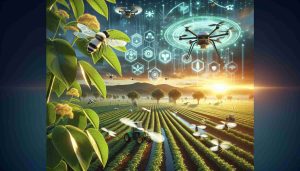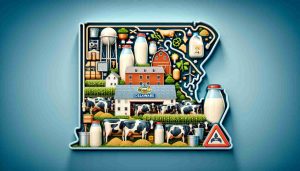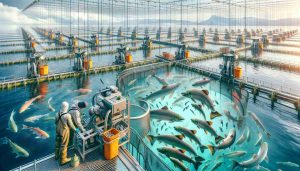Rising to the Challenge: Dutch Agriculture Minister Announces Innovative Sustainability Initiatives
3 min read
Innovative sustainability initiatives are at the forefront of Agriculture Minister Femke Wiersma’s agenda as she responds to the pressing need for environmental protection in the Netherlands.
The minister’s latest announcement showcases a bold departure from traditional approaches, focusing on empowering farmers to embrace eco-friendly practices while safeguarding the nation’s compliance with European regulations. Instead of solely relying on large-scale buyouts, Wiersma is championing a dynamic strategy that encourages farmers to adopt cutting-edge technologies for waste management and resource optimization.
Embracing a holistic perspective, Wiersma’s vision transcends mere compliance, emphasizing the intrinsic value of nurturing a harmonious relationship between agriculture and nature.
Through targeted investments in sustainable agriculture, the minister aims to revolutionize the sector, promoting innovation and resilience among Dutch farmers. By fostering a culture of environmental stewardship, Wiersma envisions a future where agricultural activities thrive in symbiosis with the natural world, heralding a new era of prosperity and ecological balance.
With her steadfast commitment to sustainability and forward-thinking solutions, Agriculture Minister Femke Wiersma is poised to lead the Dutch agricultural industry towards a brighter, more environmentally conscious future.
The Dutch Agricultural Sector: Pioneering Sustainability Efforts for the Future
In addition to the innovative sustainability initiatives already highlighted by Agriculture Minister Femke Wiersma, there are further developments shaping the landscape of Dutch agriculture towards a greener and more resilient future. These additional facts shed light on key aspects not covered in previous discussions, offering a comprehensive overview of the sector’s progress in addressing sustainability challenges.
What are the most important questions surrounding the implementation of sustainability initiatives in Dutch agriculture?
One crucial question revolves around the scalability of these initiatives. While pilot projects may showcase success on a smaller scale, can they be effectively implemented across the entire agricultural sector? Moreover, how will the government ensure that farmers receive adequate support and resources to transition to more sustainable practices?
What key challenges or controversies are associated with the push for sustainability in Dutch agriculture?
One significant challenge lies in balancing economic viability with environmental responsibility. Implementing sustainable practices often entails higher initial costs and potential disruptions to conventional farming methods. Additionally, there may be resistance from some sectors of the industry that are hesitant to adopt change due to concerns about profitability and competitiveness.
Advantages and Disadvantages of the Sustainable Agriculture Movement
The shift towards sustainable agriculture carries numerous advantages, including reduced environmental impact, improved soil health, and enhanced biodiversity. By embracing eco-friendly practices, farmers can contribute to mitigating climate change and preserving natural resources for future generations. However, challenges such as increased investment requirements, the need for specialized knowledge, and potential market uncertainties must also be carefully navigated.
While the benefits of sustainable agriculture are clear, it is essential to acknowledge the complexities and trade-offs involved in transitioning towards a more environmentally conscious model.
For more information on sustainable agriculture in the Netherlands, visit Government of the Netherlands. This official source provides insights into national policies, initiatives, and strategies aimed at promoting sustainability across various sectors, including agriculture.
The source of the article is from the blog japan-pc.jp



